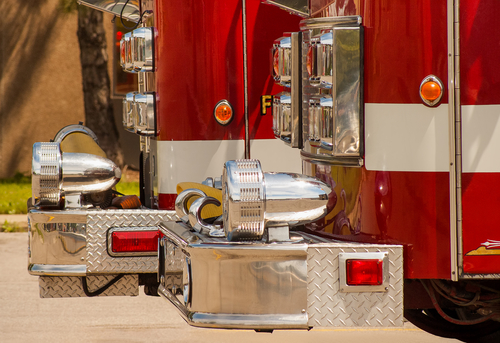
With the introduction of the Fire Grants and Safety Act in the Senate this week, a bipartisan collection of lawmakers sought to extend federal programs that support local fire departments, including two grant programs and the United States Fire Administration (USFA) at large.
Without an extension, all three programs are set to expire in the near future. Each helps local departments tackle staffing, equipment purchases, fire training, and education programs, along with improving emergency medical services. In addition to the USFA, the programs on the chopping block include the Federal Emergency Management Agency’s (FEMA) Staffing for Adequate Fire and Emergency Response (SAFER) grant program and the Assistance to Firefighters Grant (AFG) program.
“Brave and courageous firefighters depend on critical federal programs to safeguard Michiganders and people across the nation from fires and other emergencies,” U.S. Sen. Gary Peters (D-MI), chairman of the Homeland Security and Governmental Affairs Committee and a sponsor of the bill, said. “By extending these important programs, this bipartisan legislation will help the federal government ensure dedicated first responders have the resources they need to safely fight fires and effectively protect communities.”
Peters introduced similar legislation last Congress, but it ultimately failed to gain traction. In this latest effort, he was joined by U.S. Sens. Susan Collins (R-ME), Tom Carper (D-DE), and Lisa Murkowski (R-AK).
“Last year, three million acres of land burned in Alaska, accounting for nearly half of the acres burned in the entire United States,” Murkowski said. “Wildfires are becoming more prevalent throughout the country, and resources are stretched. Alaska’s vast geography makes response difficult, whether it’s our first responders heading to a wildfire hundreds of miles away or helping with a house fire in the next village during a snowstorm with no plowed roads. As Fire Caucus Co-Chair, I’m working hard to ensure our first responders have what they need to keep our communities safe.”
If approved, the legislation would reauthorize SAFER, AFG, and USFA until 2030. While it would maintain currently authorized funding levels for the grant programs, it would provide a nearly $20 million increase for USFA, authorizing $95 million for it in total. Local departments tap these programs to assist recruitment and personnel retention, buy new vehicles and equipment, provide health screenings for firefighters, and fund safety and technical resume training.
The Fire Grants and Safety Act has been backed by various firefighter-affiliated organizations, including the International Association of Fire Chiefs, National Volunteer Fire Council, Congressional Fire Services Institute, National Fallen Firefighters Foundation, International Society of Fire Service Instructors, International Association of Fire Fighters and the National Fire Protection Association.




